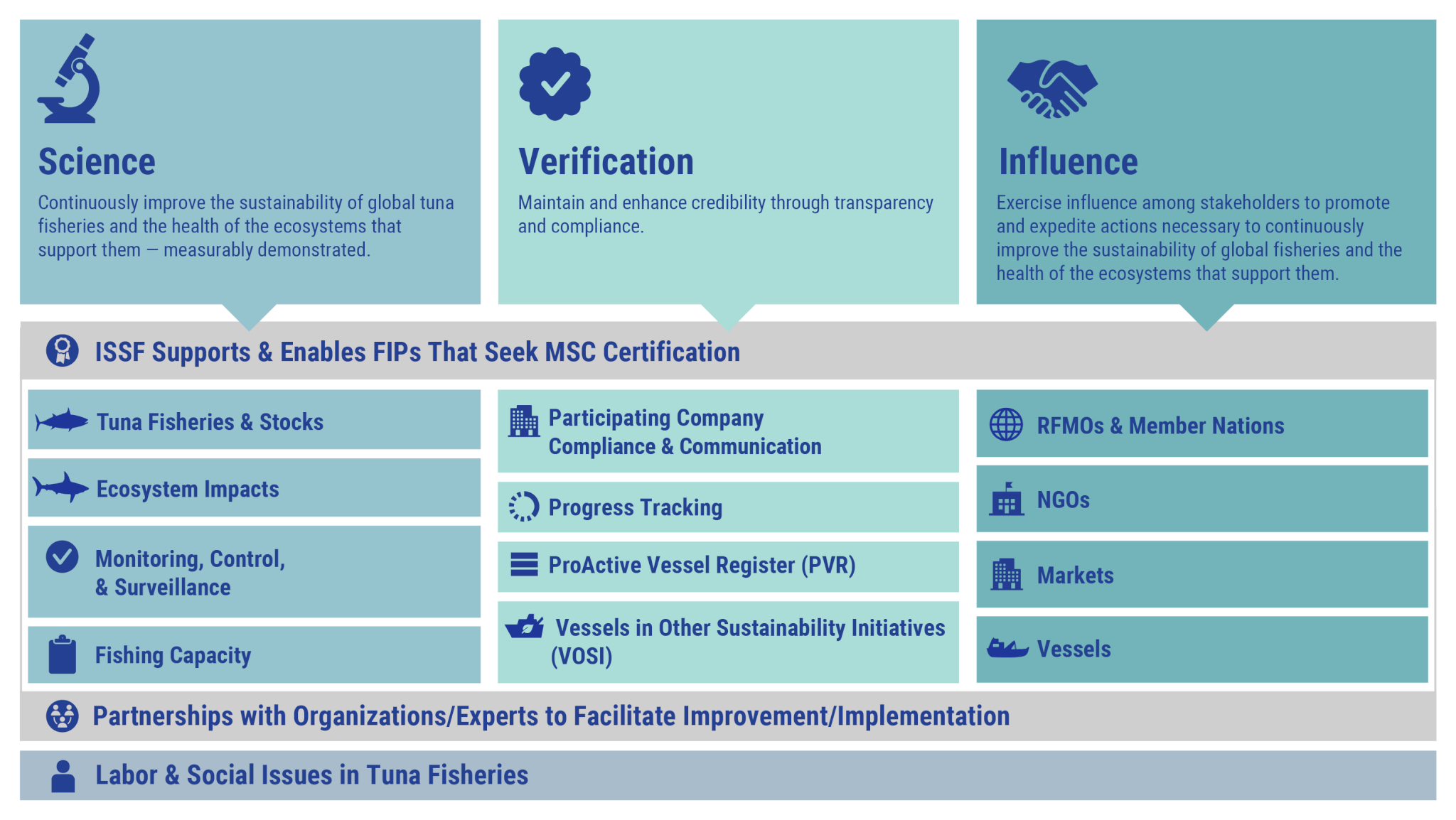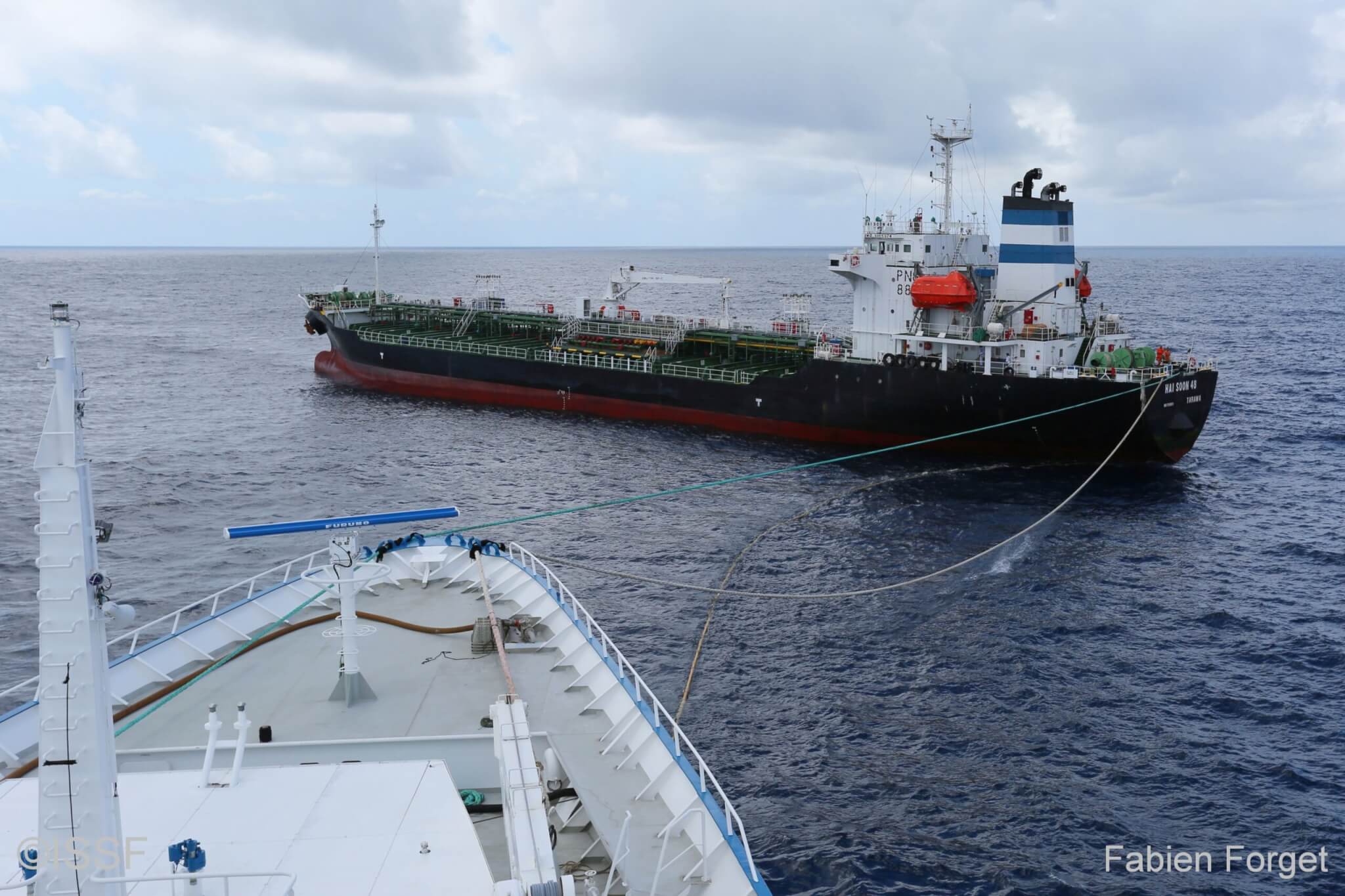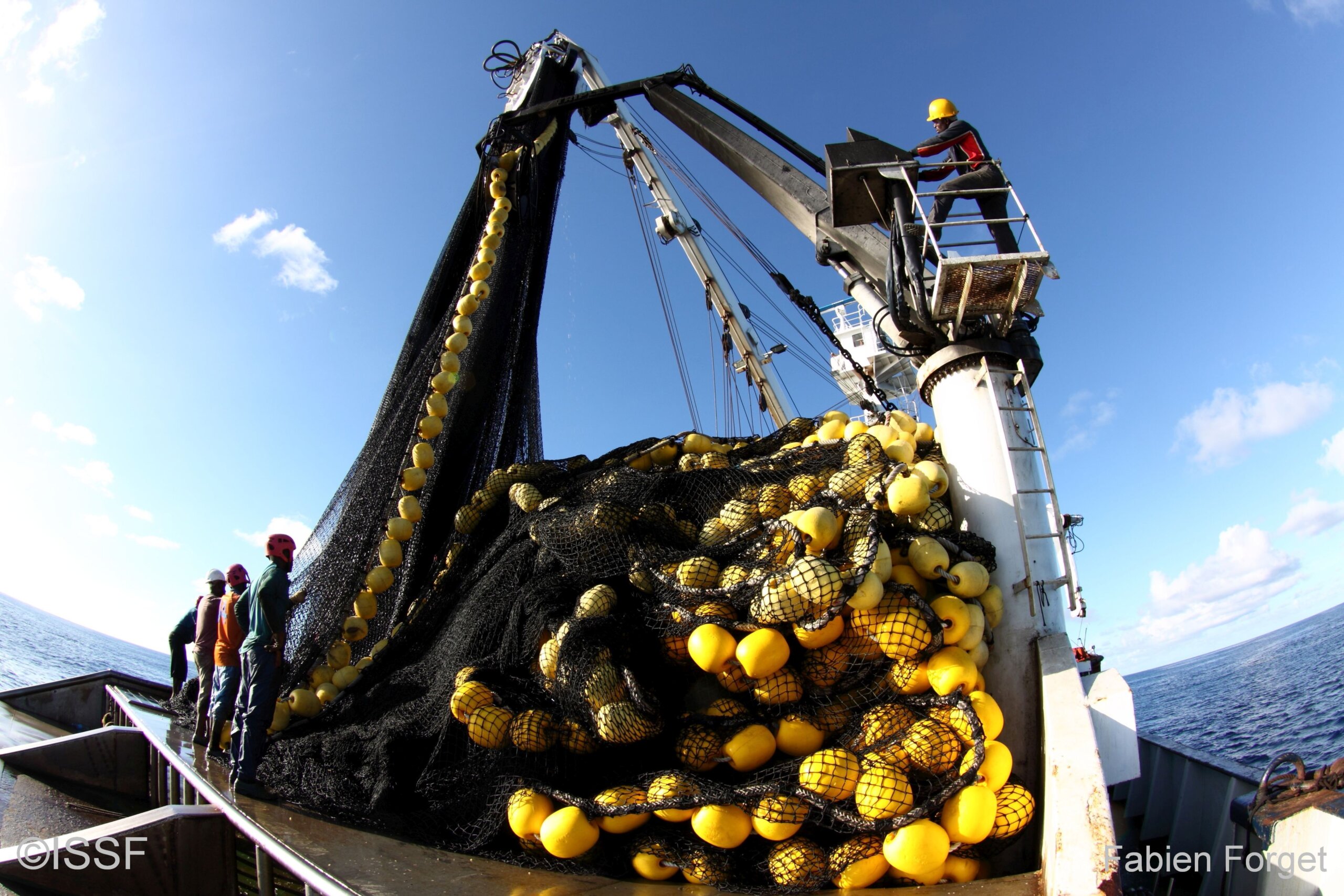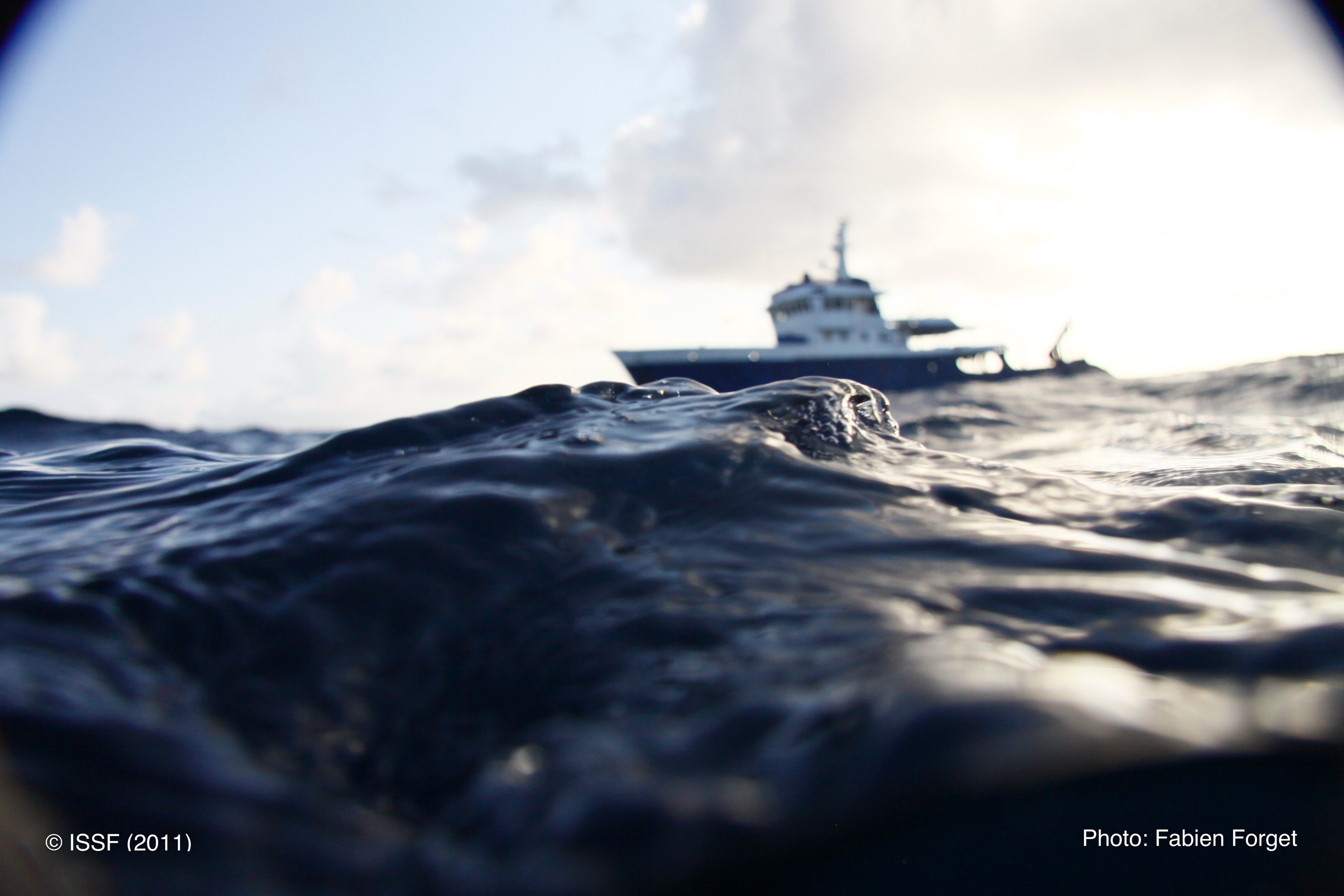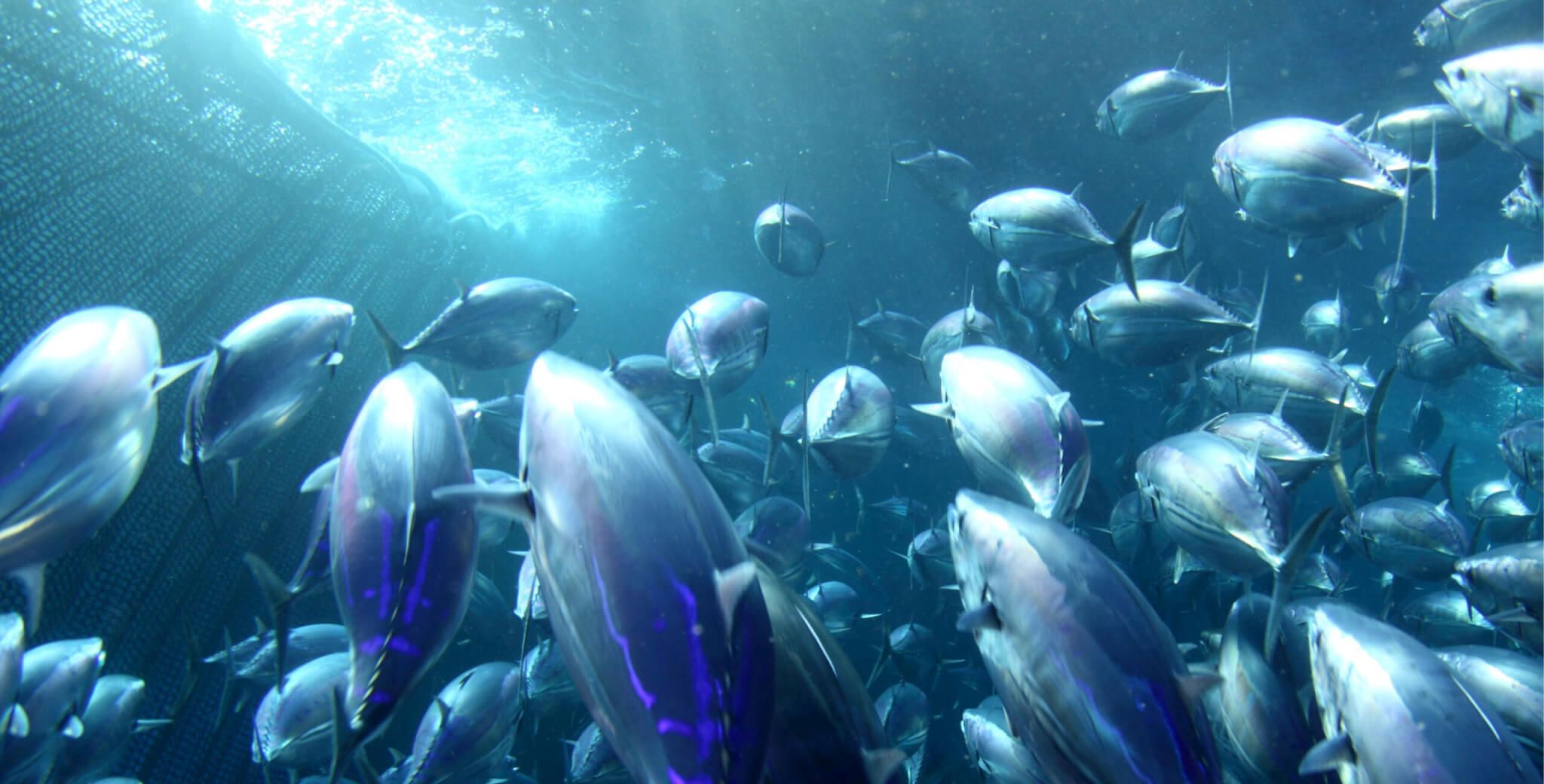
Strategic Pillars
We will implement our 2023–2027 strategic plan, Continuously Improving Global Tuna Fishery Sustainability, through ISSF’s Strategic Pillars.
In a variety of ways, we support the seafood industry and tuna Regional Fisheries Management Organizations (RFMOs) in adopting and carrying out science-based fishery management measures.
We ground our RFMO advocacy in what the best current science requires — and we continuously work to improve the science. ISSF’s strategic pillars have new or refined functional targets that align to the latest developments in tuna sustainability.
PILLARS & PRIORITIES 2023–2027
STRATEGIC PLAN FUNCTIONAL OBJECTIVES
Science |
|
|
Continuously improve the sustainability of tuna fisheries and the health of the ecosystems that support them — measurably demonstrated. |
|
Tuna fisheries and stocksDefine, support, and promote science-based approaches to improve global tuna fisheries. Monitor and report on the status of tuna stocks and international management of global tuna fisheries against MSC performance indicators (PIs). |
|
Ecosystem ImpactsDefine, support, and promote comprehensive, science-based approaches to addressing ecosystem impacts across global tuna fisheries, with an emphasis on continuous improvement of FADs and other fishing gear, and mitigation of associated bycatch. Explore and advance science-based approaches to addressing broader ecosystem impacts of tuna fishing. |
|
Monitoring, Control & Surveillance (MCS)Define, support, and promote science-based efforts to improve MCS across global tuna fisheries to eliminate illegal, unreported and/or unregulated (IUU) fishing, to increase transparency across global tuna fisheries through greater monitoring and observation, and to improve the collection, reporting, and sharing of fishery data and activity to inform fisheries science, management, and compliance assessment. |
|
Fishing CapacityFacilitate the conservation and management of tuna resources through effective management measures that seek to eliminate excess fishing capacity. |
Verification |
|
|
Maintain and enhance credibility through transparency and compliance. |
|
Participating Company Compliance & CommunicationEnsure participating company compliance with all ISSF conservation management measures – with an emphasis on traceability from vessel to plate. Communicate results publicly to promote transparency, and to support and enhance ISSF’s credibility and influence among interested stakeholders. |
|
Progress TrackingProvide stakeholders with opportunities to track and report on the progress participating companies and vessels are achieving in their efforts to continuously improve global tuna fishery and ecosystem health, providing greater clarity and understanding of ongoing efforts and progress. |
|
Proactive Vessel Register (PVR)Track compliance with ISSF conservation management measures by fishing vessels participating in the PVR as a means for promoting and enhancing transparency; strengthen, expand, promote and leverage the PVR as a verification tool for vessels engaged in MSC-certified fisheries and FIPs as applicable. |
|
Vessels in Other Sustainability Initiatives (VOSI)Track the public sustainable fishing commitments made by tuna vessels beyond the measures reflected on the PVR. Promote and leverage the VOSI as a transparency tool for stakeholders, including seafood companies. |
Influence |
|
|
Exercise influence among stakeholders to promote and expedite actions necessary to continuously improve the sustainability of global fisheries and the health of the ecosystems that support them. |
|
RFMOs & Member NationsUrge RFMO members to adopt and implement science-based, enforceable conservation management measures, including precautionary harvest strategies. Provide the tools that positively impact global tuna fishery and ecosystem sustainability, as well as RFMO policies and governance reforms required to ensure effectiveness, transparency, and compliance. |
|
NGOsEngage directly with organizations that focus on policies and tools for global tuna fishery and ecosystem sustainability, working collaboratively on topics of common concern, and where NGO efforts align with ISSF science-based approaches, information, tools and RFMO advocacy efforts. |
|
MarketsEnsure awareness among market partners of global tuna fishery and ecosystem health, and of ISSF’s efforts to continuously improve them over time, as well as how market partners can support these efforts through policy and purchasing decisions. Amplify awareness through coordination among engaged stakeholders. Urge markets to transparently verify implementation of their policy and purchasing decisions, including for their private label brands, thereby enhancing the credibility of their efforts. |
|
VesselsEngage vessel owners and the organizations that represent them – primarily through MSC-certified fisheries and FIPs seeking MSC certification – to advance sustainability efforts in ways that can be practically implemented and verified. |
ISSF Supports & Enables FIPs That Seek MSC Certification |
|
|
ISSF seeks to expedite the achievement of MSC certification standards across global tuna fisheries. In support of this objective, ISSF will: |
|
Provide science-based guidance, data, and tools as a stakeholder in Fishery Improvement Projects (FIPs) that seek to achieve MSC certification standards, as well as advocacy support at the RFMO and RFMO member government levels, to support the implementation of FIP work plans. |
|
|
Provide support and tools to tuna fisheries that are MSC-certified with conditions so they may close those conditions. |
|
|
Make available ISSF verification tools to all tuna fisheries, including tools for participating company traceability and vessel best practices, so they may transparently demonstrate progress against MSC certification standards, and progress in closing conditions if already MSC-certified. |
Partnerships with Organizations/Experts to Facilitate Improvement/Implementation |
|
|
ISSF seeks opportunities for partnership where possible with scientific institutions, researchers, non-governmental organizations, industry collaborations, academics, and content experts across all ISSF priorities, with the goal of expediting continuous improvements across global tuna fisheries and the ecosystems that support them. |
Labor & Social Issues in Tuna Fisheries |
|
|
Closely monitor third-party efforts to develop and implement labor and social standards for tuna fishing activities on a global scale. Explore appropriate ways for ISSF and/or participating companies to support and implement these standards. |
2023–2027 Strategic Plan
Learn about our new five-year goal for sustainable tuna fisheries — and our approach to achieving it.
ISSF Conservation Measures
To guide tuna vessels and seafood companies in adopting sustainable tuna fishing and sourcing practices, we offer a comprehensive suite of conservation measures.
ISSF measures cover everything from traceability and bycatch mitigation to social and labor standards — and participating vessels and companies are independently audited on their compliance.
